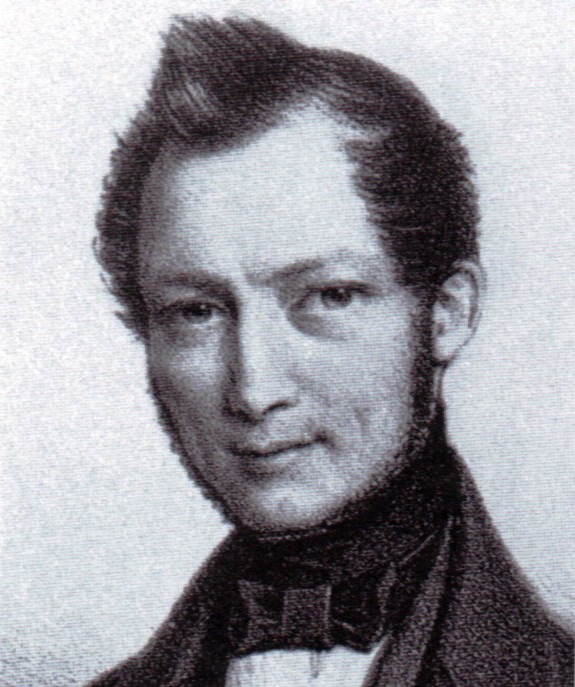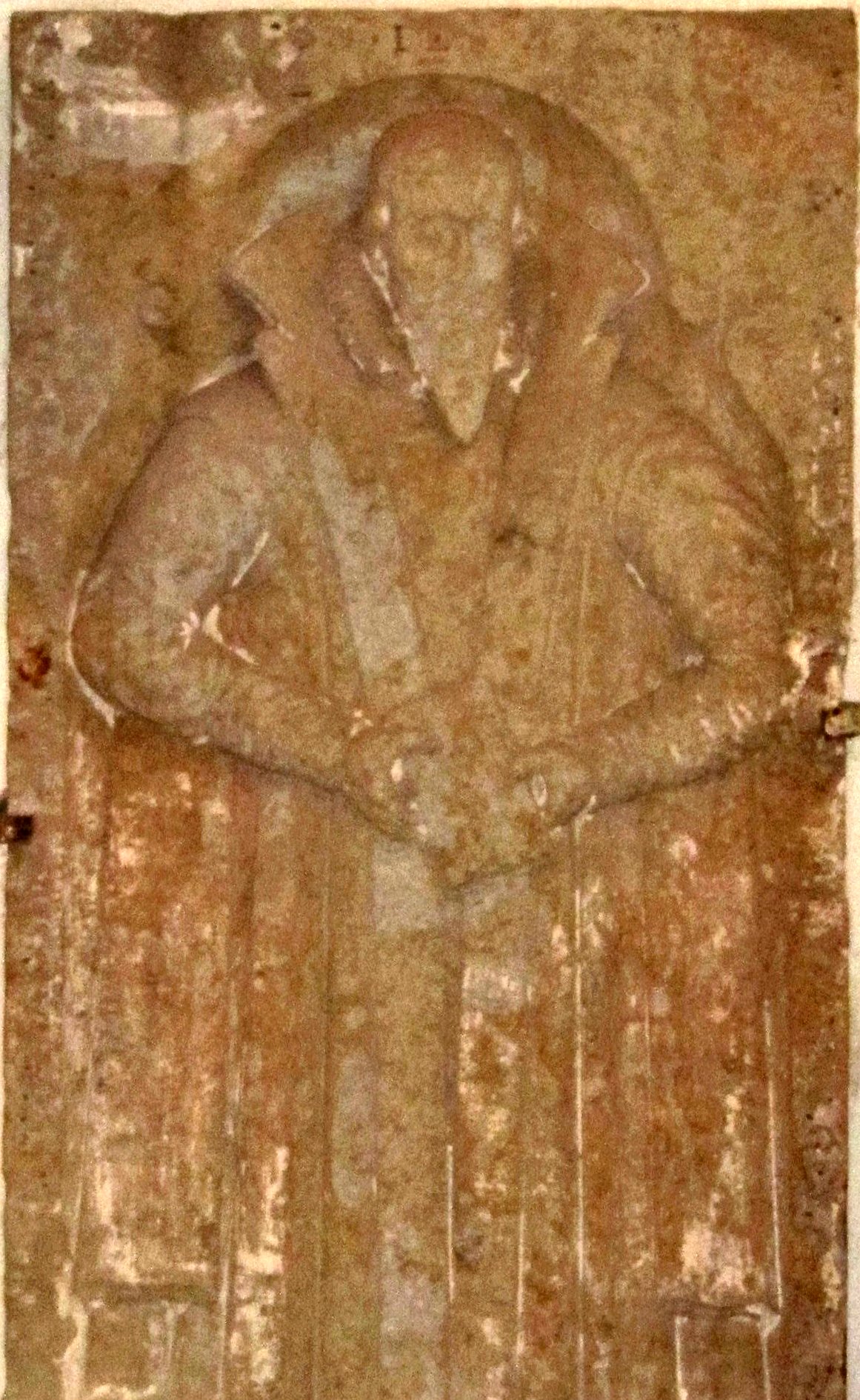|
Engelbert Wusterwitz
Engelbert Wusterwitz (c. 1385–1433) was a chronicler of the history of the Margraviate of Brandenburg. He wrote during the time when the House of Hohenzollern, the dynasty of the later kings of Prussia, gained rulership over Brandenburg. Born in Brandenburg to a family originally from Wusterwitz, Engelbert studied at the University of Erfurt in 1404 and at the University of Prague in 1406/7. He worked as a clerk and jurist in Brandenburg and Magdeburg. In Magdeburg, the ''Schöppenchronik'' is continued in his hand for the period of 1411 to 1421. In 1427, he was in the service of the bishop of Halberstadt. His own chronicle covered the period of 1391 to 1423. During this time, Frederick VI, Burgrave of Nuremberg of the House of Hohenzollern, was appointed governor of Brandenburg in order to restore order and stability amid excessive feuds between the nobility and later elevated to the rank of Elector and Margrave of Brandenburg as Frederick I. Engelbert supported Frederick a ... [...More Info...] [...Related Items...] OR: [Wikipedia] [Google] [Baidu] |
Margraviate Of Brandenburg
The Margraviate of Brandenburg (german: link=no, Markgrafschaft Brandenburg) was a major principality of the Holy Roman Empire from 1157 to 1806 that played a pivotal role in the history of Germany and Central Europe. Brandenburg developed out of the Northern March founded in the territory of the Slavic peoples, Slavic Wends. It derived one of its names from this inheritance, the March of Brandenburg (). Its ruling margraves were established as prestigious prince-electors in the Golden Bull of 1356, allowing them to vote in the election of the Holy Roman Emperor. The state thus became additionally known as Electoral Brandenburg or the Electorate of Brandenburg ( or ). The House of Hohenzollern came to the throne of Brandenburg in 1415. In 1417, Frederick I, Elector of Brandenburg, Frederick I moved its capital from Brandenburg an der Havel to Berlin. By 1535, the electorate had an area of some and a population of 400,000.Preserved SmithThe Social Background of the Reformation.19 ... [...More Info...] [...Related Items...] OR: [Wikipedia] [Google] [Baidu] |
Feud
A feud , referred to in more extreme cases as a blood feud, vendetta, faida, clan war, gang war, or private war, is a long-running argument or fight, often between social groups of people, especially families or clans. Feuds begin because one party perceives itself to have been attacked, insulted, injured, or otherwise wronged by another. Intense feelings of resentment trigger an initial retribution, which causes the other party to feel greatly aggrieved and vengeful. The dispute is subsequently fuelled by a long-running cycle of retaliatory violence. This continual cycle of provocation and retaliation usually makes it extremely difficult to end the feud peacefully. Feuds can persist for generations and may result in extreme acts of violence. They can be interpreted as an extreme outgrowth of social relations based in family honor. Until the early modern period, feuds were considered legitimate legal instruments and were regulated to some degree. For example, Montenegrin cultur ... [...More Info...] [...Related Items...] OR: [Wikipedia] [Google] [Baidu] |
German Chroniclers
German(s) may refer to: * Germany (of or related to) **Germania (historical use) * Germans, citizens of Germany, people of German ancestry, or native speakers of the German language ** For citizens of Germany, see also German nationality law **Germanic peoples (Roman times) * German language **any of the Germanic languages * German cuisine, traditional foods of Germany People * German (given name) * German (surname) * Germán, a Spanish name Places * German (parish), Isle of Man * German, Albania, or Gërmej * German, Bulgaria * German, Iran * German, North Macedonia * German, New York, U.S. * Agios Germanos, Greece Other uses * German (mythology), a South Slavic mythological being * Germans (band), a Canadian rock band * "German" (song), a 2019 song by No Money Enterprise * ''The German'', a 2008 short film * "The Germans", an episode of ''Fawlty Towers'' * ''The German'', a nickname for Congolese rebel André Kisase Ngandu See also * Germanic (other) * Germa ... [...More Info...] [...Related Items...] OR: [Wikipedia] [Google] [Baidu] |
1433 Deaths
Year 1433 ( MCDXXXIII) was a common year starting on Thursday (link will display the full calendar) of the Julian calendar. Events January–December * May 31 – Sigismund is crowned Holy Roman Emperor in Rome. There has been no crowned Emperor since the death of his father, Charles IV, in 1378. * August 14 – Edward I becomes King of Portugal. * September – Cosimo de' Medici, later the ''de facto'' ruler of Florence and patron of Marsilio Ficino, is exiled by the Albizzi/Strozzi faction (Cosimo returns a year later, in September 1434). * October – Iliaș of Moldavia is deposed by his half-brother and joint ruler Stephen II. Date unknown * The Ming Dynasty in China completes its last great maritime expedition, led by Admiral Zheng He; the fleet would be dispersed, altering the balance of power in the Indian Ocean, and making it easier for Portugal and other Western naval powers to gain dominance over the seas. * In Ming Dynasty China, cotton ... [...More Info...] [...Related Items...] OR: [Wikipedia] [Google] [Baidu] |
1380s Births
138 may refer to: *138 (number) *138 BC *AD 138 Year 138 ( CXXXVIII) was a common year starting on Tuesday (link will display the full calendar) of the Julian calendar. At the time, it was known as the Year of the Consulship of Niger and Camerinus (or, less frequently, year 891 ''Ab urbe con ... * 138 (New Jersey bus) {{numberdis ... [...More Info...] [...Related Items...] OR: [Wikipedia] [Google] [Baidu] |
Adolph Friedrich Johann Riedel
Adolph Friedrich Johann Riedel (1809 Biendorf – 1872, Berlin) was a German (Prussian) antiquarian, industrialist and politician, author of ''Codex diplomaticus Brandenburgensis'', a collection of primary documents on the history of the Margraviate of Brandenburg, in 36 volumes. Riedel studied theology and philology at the University of Berlin, where he served as assistant professor from 1832. He was naturalized as a Prussian citizen in 1833 and was employed in the state archive. He was promoted to ''Hofrat'' in 1836 and to '' Geheimer Archivrat'' in 1842, from which time he was also professor for political science at Berlin University. In 1837, he co-founded the Historical Society of Brandenburg (''Vereins für Geschichte der Mark Brandenburg''). In 1851 he was admitted as a member of the Prussian Academy of Sciences, and from 1868 he was official historiographer for Brandenburg. He was also member of the directorate of the Berlin–Wrocław and Berlin-Anhalt railway companie ... [...More Info...] [...Related Items...] OR: [Wikipedia] [Google] [Baidu] |
Peter Hafftiz
Peter Hafftiz (also ''Haftiz''; ''Petrus Haftitius, Hafftitius'', c. 1525 – c. 1601) was a German educator and historiographer. From 1550 he was teacher at the schools of St. Nicolai and St. Marien in Berlin, from 1560 as rector. He received Berlin citizenship in 1564. From 1577 to 1580 he was rector in the public school of Cölln. His major work is a chronicle of the Margraviate of Brandenburg, probably begun after 1593, which is in part based on the earlier chronicles of Engelbert Wusterwitz and Andreas Angelus. The chronicle is extant in a number of manuscripts in his hand, under various titles, among others ''Microchronicon Marchium'', and in a number of later manuscript copies. Minor works by Hafftiz include ''De vita et obitu Joachimi II. S. R. I. archicamerarii ..ac d. Johannis fratris march. Br.'' (1571), ''Liber de extremo iudicio'' (1576), ''Ecloga in obitum Augusti el. Saxoniae'' (1586), ''Tractat vom Adel u. dessen Ursprung'' (1587 manuscript). Hafftiz ... [...More Info...] [...Related Items...] OR: [Wikipedia] [Google] [Baidu] |
Andreas Angelus
Andreas Angelus (German name ''Andreas Engel'', 16 November 1561 – 9 August 1598) was a German clergyman, teacher and government inspector, known for his chronicles of the history of the Margraviate of Brandenburg. Biography Engel was born in Strausberg, Germany, the son of Gregorius Engel, a member of the town council. At the early age of 12 he was admitted to the Alma Mater Viadrina, the university of Frankfurt an der Oder (now the Viadrina European University). His family died in 1575 of the plague, after which he left Brandenburg; he is recorded in 1577 as a pupil of the Marienstiftsgymnasium in Stettin. Later he lived for some time in Holstein where he wrote a chronicle of Holstein. From about 1580 he can be traced once again in Brandenburg, in various educational posts: conrector and cantor in Strausberg from 1582; rector in Strausberg 1584-1586; conrector in the ''Neustadt'' of Brandenburg an der Havel 1586-87; also as a teacher in the Franciscans' school in Berlin ... [...More Info...] [...Related Items...] OR: [Wikipedia] [Google] [Baidu] |
Margrave Of Brandenburg
This article lists the Margraves and Electors of Margraviate of Brandenburg, Brandenburg during the period of time that Brandenburg was a constituent state of the Holy Roman Empire. The Mark, or ''March'', of Brandenburg was one of the primary constituent states of the Holy Roman Empire. It was created in 1157 as the Margraviate of Brandenburg by Albert the Bear, Margrave of the Northern March. In 1356, by the terms of the Golden Bull of 1356, Golden Bull of Charles IV, Holy Roman Emperor, Charles IV, the Margrave of Brandenburg was given the permanent right to participate in the Imperial election, election of the Holy Roman Emperor with the title of Prince-elector, Elector (german: Kurfürst). The early rulers came from several different dynasties, but from 1415 Brandenburg and its successor states were ruled by the House of Hohenzollern for over 500 years. From 1618 onward, Brandenburg was ruled in personal union with the Duchy of Prussia. The Hohenzollerns raised Prussia t ... [...More Info...] [...Related Items...] OR: [Wikipedia] [Google] [Baidu] |
Burgrave Of Nuremberg
The Burgraviate of Nuremberg (german: Burggrafschaft Nürnberg) was a state of the Holy Roman Empire from the early 12th to the late 15th centuries. As a burgraviate, it was a county seated in the town of Nuremberg; almost two centuries passed before the burgraviate lost power over the city, which became independent from 1219. Eventually, the burgraviate was partitioned to form Brandenburg-Ansbach and Brandenburg-Bayreuth. History Nuremberg was probably founded around the turn of the 11th century, according to the first documentary mention of the city in 1050, as the location of an Imperial castle between the East Franks and the Bavarian March of the Nordgau.Nürnberg, Reichsstadt: Politische und soziale Entwicklung (Political and Social Developm ... [...More Info...] [...Related Items...] OR: [Wikipedia] [Google] [Baidu] |
House Of Hohenzollern
The House of Hohenzollern (, also , german: Haus Hohenzollern, , ro, Casa de Hohenzollern) is a German royal (and from 1871 to 1918, imperial) dynasty whose members were variously princes, Prince-elector, electors, kings and emperors of Hohenzollern Castle, Hohenzollern, Margraviate of Brandenburg, Brandenburg, Kingdom of Prussia, Prussia, the German Empire, and Kingdom of Romania, Romania. The family came from the area around the town of Hechingen in Swabia during the late 11th century and took their name from Hohenzollern Castle. The first ancestors of the Hohenzollerns were mentioned in 1061. The Hohenzollern family split into two branches, the Catholic Church, Catholic Swabian branch and the Protestantism, Protestant Burgraviate of Nuremberg#List of burgraves, Franconian branch,''Genealogisches Handbuch des Adels, Fürstliche Häuser'' XIX. "Haus Hohenzollern". C.A. Starke Verlag, 2011, pp. 30–33. . which ruled the Burgraviate of Nuremberg and later became the Brandenburg-P ... [...More Info...] [...Related Items...] OR: [Wikipedia] [Google] [Baidu] |
Frederick I, Elector Of Brandenburg
Frederick (Middle High German: ''Friderich'''','' Standard German: ''Friedrich''; 21 September 1371 – 20 September 1440) was the last Burgrave of Nuremberg from 1397 to 1427 (as Frederick VI), Margrave of Brandenburg-Ansbach from 1398, Margrave of Brandenburg-Kulmbach from 1420, and Elector of Brandenburg (as Frederick I) from 1415 until his death. He became the first member of the House of Hohenzollern to rule the Margraviate of Brandenburg. Biography Frederick was born in Nuremberg, the second-born son of Burgrave Frederick V (1333–1398) and the Wettin princess Elisabeth of Meissen. He entered early into the service of his brother-in-law, the Habsburg duke Albert III of Austria. After Albert's death in 1395, he fought on the side of the Luxembourg king Sigismund of Hungary against invading Ottoman forces. He and his elder brother John, husband of Sigismund's sister Margaret of Bohemia, fought in the 1396 Battle of Nicopolis where they suffered a disastrous defe ... [...More Info...] [...Related Items...] OR: [Wikipedia] [Google] [Baidu] |



